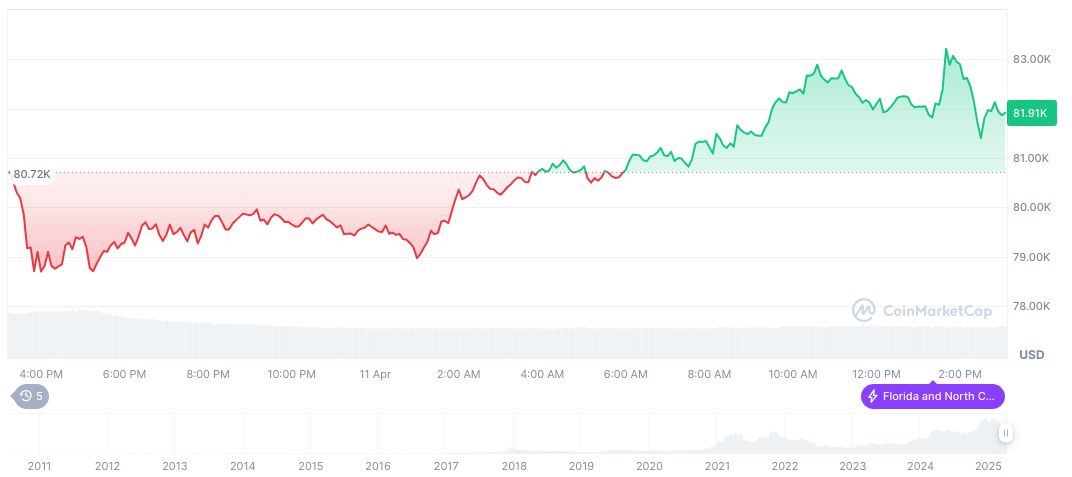- Trump praises U.S. tariff policy affecting global trade and crypto.
- Tariffs impact currency demand, influencing Bitcoin.
- Economic shifts enhance Bitcoin’s inflation hedge appeal.
President Donald Trump has praised the U.S. tariff policy, describing it as successful and beneficial for both the United States and the global economy. The statement aligns with recent trade activities under Trump’s administration.
Trump’s remarks underline the administration’s focus on bolstering domestic production and addressing trade imbalances, which has implications for various markets, including cryptocurrency.
U.S. Trade Policies Altering Crypto Market Dynamics
President Trump’s support for the U.S. tariff policy highlights his administration’s efforts to promote economic independence and reinforce domestic markets. These policies have intensified focus on industries such as shipbuilding, backed by increased tariffs and strategic funding plans.
Trade policies have altered U.S. financial resource allocation, aiming to revive key industries. The shift in global trade dynamics is projected to reduce dollar demand, influencing markets including cryptocurrencies. Bitcoin, frequently seen as an inflation hedge, could experience strengthened demand amid these global economic alterations.
Market responses include reactions from various sectors. Cryptocurrencies tied to U.S.-China trade could face volatility if liquidity shifts. President Trump emphasized the policy’s success, stating it was “exciting for both the United States and the world.”
President Donald Trump, President of the United States, – “Our tariff policy is doing very well. This is exciting for both the United States and the world!”
Bitcoin Price Surge Amid Inflation Hedge Appeal
Did you know? In past tariff implementations, cryptocurrencies like Bitcoin often gain traction as investors seek alternatives amidst inflationary pressures triggered by policy changes.
Bitcoin’s price currently stands at $83,487.20 with a market cap of $1.66 trillion and a dominance of 62.75%, as reported by CoinMarketCap. The 24-hour trading volume decreased by 16.71%, while past price changes indicate a 3.08% rise over the last day and marginal shifts over longer periods.

Insights from Coincu’s research suggest that continued shifts in trade may boost Bitcoin as a long-term alternative asset. Analysts forecast potential growth for decentralized technologies, attributing this to evolving economic landscapes and increasing demand for hedges against market volatility.























